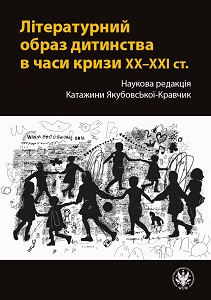ВОЄННЕ ДИТИНСТВО У ПРОЗІ ГРИГОРА ТЮТЮННИКА В КОНТЕКСТІ ПОСТКОЛОНІАЛЬНИХ ПРАКТИК
A war childhood in the prose of Hryhir Tiutiunnyk in the context of post-totalitarian practices
Author(s): Halina Korbicz
Subject(s): Cultural history, Theoretical Linguistics, Applied Linguistics, Studies of Literature, Ukrainian Literature, Philology
Published by: Wydawnictwa Uniwersytetu Warszawskiego
Keywords: war; orphan; hard journey; asking for bread; colonial practices; traumatic experiences;individual and collective memory;
Summary/Abstract: The paper conveys an analysis and interpretation of the 1960s–1970s literary prose of the Ukrainian writer Hryhir Tiutiunnyk. Autobiographism-based novels and short stories present the writer’s childhood during World War II. It is claimed that the war, and especially its early period, constitute a background for showing the true image of life in the Ukrainian land, which the Soviet authorities had turned into their internal colony – an analog of the third world. An orphaned child, as the weakest link in the Ukrainian society of the time, goes through traumatic experiences that would influence his entire life. The works of Tiutiunnyk as well as other writers tackling similar issues facilitate research in the post-colonial thinking trend and allow employing post-colonial theory tools not only for the post-totalitarian era, beginning after the 1989–1991 transformation period in Middle and Eastern Europe, but also directly for colonial practices and states before the critical event.
Book: Літературний образ дитинства в часи кризи XX–XXI ст. - Наукова редакція Катажини Якубовської-Кравчик
- Page Range: 59-72
- Page Count: 14
- Publication Year: 2021
- Language: Polish, Ukrainian
- Content File-PDF

